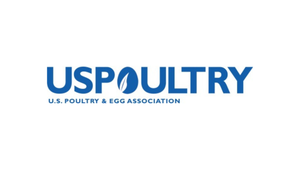The ag industry desperately needs a large number of reliable and legal workers.

It seems the passion for Trump exhibited by so many in America’s farming communities might be going unappreciated. Much of the 46.1% of the popular vote enjoyed by the Republican candidate came from what’s popularly called heartland America, a region that depends on migrant labor -- half of it illegal -- to survive.
The impact of a significant cut in immigrant labor came in two recent studies. An Associated Press analysis of data from the departments of labor and agriculture estimated immigrants working illegally accounted for about 46% of America's roughly 800,000 crop farmworkers. A Pew report said farming uses a higher percentage of illegal labor than any other American industry.
It’s understandable that Trump's hard line rhetoric against people living in the U.S. illegally has set the nation's agricultural industry on edge. An ICE-led sweep of the fields during harvest, similar to the recent raids on 7-11 stores, would decimate agriculture and spike food prices to a socially unacceptable level.
A 2012 U.S. Department of Agriculture study warned that “stepped-up deportations could carry significant economic implications.” If America's unauthorized labor force shrank 40%, for example, the USDA report claimed vegetable production could drop by more than 4%, an extremely modest number. A more recent report by the American Farm Bureau Federation agreed with USDA. Stricter immigration enforcement could raise food prices 5-6% because of that drop in supply and the higher labor costs farmers could face.
It is critical that the Trump Administration develop a viable guest worker program before the door is slammed on immigrant labor. Representative Bob Goodlatte (R., Va.) made the first pass when he introduced the Agricultural Guestworker Act last fall. It replaces and widens the current H-2A guestworker program, which is limited to farmworkers It would include dairy workers and meat and poultry processor employees and end many of the existing worker protections.
It is a flawed plan, however, that does not protect the working conditions and ignores the rights of agricultural employees, legal or illegal. Goodlatte’s plan prevents a government agency from inspecting worksites without checking with the employer, makes previously covered travel and housing an employee cost, has no provision to control labor recruitment fees and allows employers to pay a lower wage.
The transferring of significant additional living costs to guest workers while allowing their pay to be reduced will not invite sufficient numbers of new workers to fill the need. Already living at or below the poverty line, the new plan will drive them even further into poverty.
The plan also prevents workers from suing their employer, instead requiring mandatory arbitration and requires the employee to cover half the cost. The new program would also remove responsibility from the Department of Labor and hand it to the Department of Agriculture.
To assure an adequate supply of agricultural workers, Goodlatte’s regressive plan must be blocked and a more viable and employee-friendly visa program should be developed as soon as possible. The ag industry desperately needs a large number of reliable and legal workers. A visa program that helps improve pay and living conditions would help reduce the ill-will generated by the current anti-immigrant rhetoric and do a much more effective job of attracting a much needed work force of more than 1 million men and women -- including dairy workers and meat and poultry processor employees.
About the Author(s)
You May Also Like



